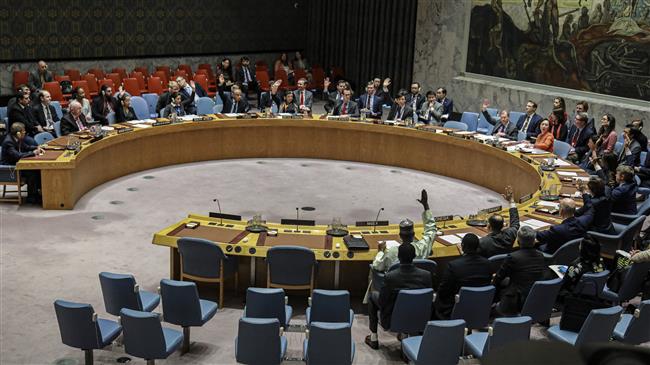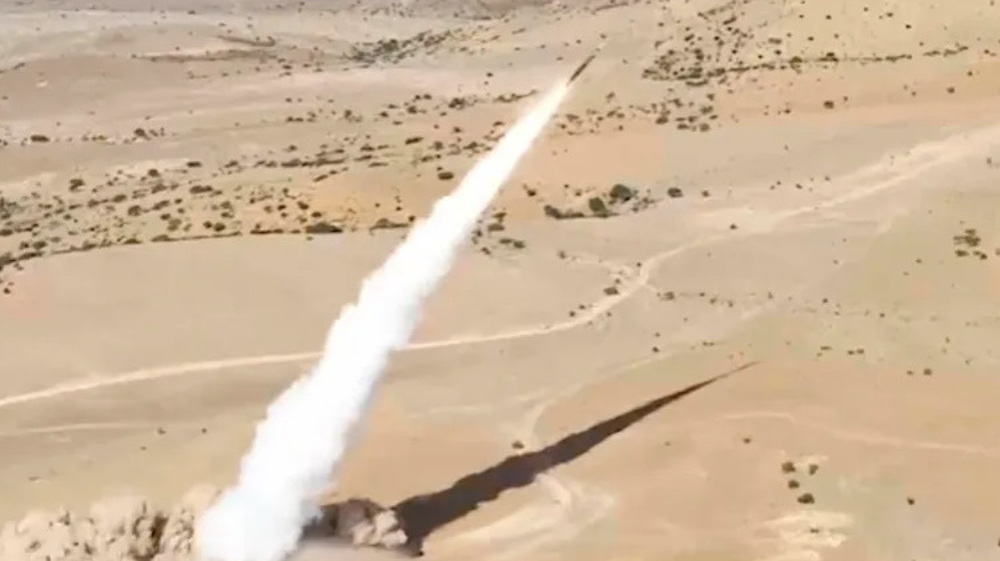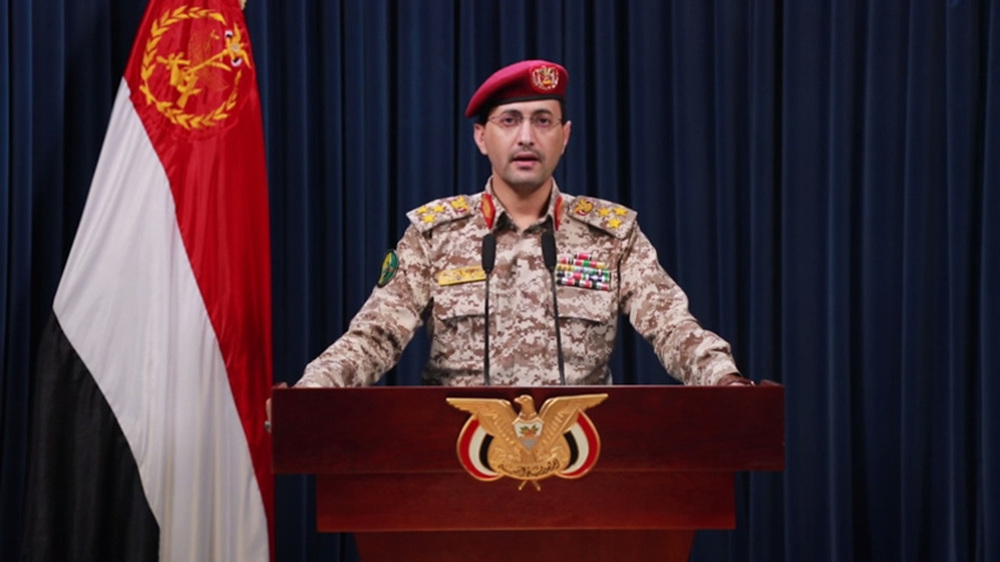UNSC adopts resolution extending Yemen sanctions
The United Nations Security Council (UNSC) has approved a resolution extending sanctions against Yemen despite criticisms by Russia and China that the document fails to meet their concerns.
The much-revised resolution, proposed by Britain, was passed on Tuesday by 13 votes in favor and two abstentions from Russia and China.
It prolonged until February 26, 2021 the asset freeze and travel ban imposed on individuals or entities claimed to be threatening peace, security and stability in Yemen. Those sanctions were first imposed on the impoverished country in February 2014 under UNSC Resolution 2140.
The resolution reaffirmed the provisions of an arms embargo imposed in April 2015 on fighters of the Houthi Ansarullah movement, which currently runs Yemen, and forces loyal to ex-president Ali Abdullah Saleh.
The resolution also renewed until March 28, 2021 the mandate of the UN panel of experts on Yemen, which was established pursuant to UNSC Resolution 2140.
The resolution asks a panel of experts to report on “commercially available components which have been used by individuals and entities” on the UN sanction blacklist “to assemble unmanned aerial vehicles, water-borne improvised explosive devices, and other weapons systems.”
The panel claimed in late January that Yemen’s Houthi Ansarullah movement is receiving parts for drones and weapons, some with technical characteristics similar to arms manufactured in Iran. It also claimed a smuggling route “seems to run overland from Oman and the southern coast of Yemen, through territory controlled by the [self-proclaimed] government of Yemen, towards Sana’a.”
Both Tehran and Sana’a have rejected the claims as baseless.
Russian and Chinese objections led to many revisions to the draft, including the elimination of all references to Iran and the Houhis, according to reports.
However, Beijing and Moscow, both of which wield veto power at the council, abstained from voting, saying the document did not still address their concerns despite the revisions.
At the session, Russian UN Ambassador Vasily Nebenzya said his country was presented with “a take-it-or-leave-it approach which does not allow for compromise,” adding, “We cannot agree to that kind of approach.”
“The Russian Federation did not support the draft resolution proposed by the United Kingdom extending sanctions and the mandate of the Panel of Experts on Yemen established pursuant to SC Resolution 2140, because not all of our concerns were taken into account,” he noted.
Nebenzya also stressed that the Security Council needs to focus on joint efforts aimed at finding ways to settle the conflict in Yemen, which has been the target of a Western-backed military campaign led by Saudi Arabia for almost five years.
“The aim of the resolution was to extend the sanctions regime and the mandate of the Panel of Experts, rather than to compete in promoting their approaches that go beyond the objectives of the resolution,” he said.
Similarly, Wu Haitao, China’s deputy permanent representative to the UN, complained that the UNSC resolution did not take into account Beijing’s concerns.
“The Chinese delegation proposed many amendments, but the final text failed to meet its concerns,” he said.
Therefore, he added, China could not vote in favor of the document.
The Chinese diplomat further described the task assigned to the UN panel of experts on Yemen as excessively broad.
Backed by the US, a number of other Western states and a coalition of its allies, the Saudi regime launched the bloody war in March 2015 aimed at reinstalling a former Riyadh-friendly government in Yemen.
The Saudi military aggression, coupled with a naval blockade, has killed and injured hundreds of thousands of people, and plunged Yemen into what the UN says the world’s worst humanitarian crisis.
The UN says an estimated 24 million people – close to 80 percent of the population – need assistance and protection in Yemen.
The resolution was passed amid growing calls for the US and its allies to stop supporting the Saudi war and for the international community to slap sanctions on Riyadh for its war crimes in Yemen.
Relentless Israeli ceasefire violations justify need for self-defense: Lebanese MP
Tel Aviv tells Damascus Israeli forces will remain in occupied territory: Report
Dec. 22: ‘Axis of Resistance’ operations against Israeli occupation
‘Abhorrent’: Oxfam says only 12 trucks delivered aid in North Gaza since Oct.
VIDEO | Leader receives religious eulogists on Hazrat Fatima birth anniv.
Pope Francis slams Israel’s ‘machine-gunning’ of Gaza children
US hostage-taking of Iranian nationals violation of intl. law: Deputy FM
VIDEO | Carol Singers for Palestine on London’s Parliament Square

















 This makes it easy to access the Press TV website
This makes it easy to access the Press TV website